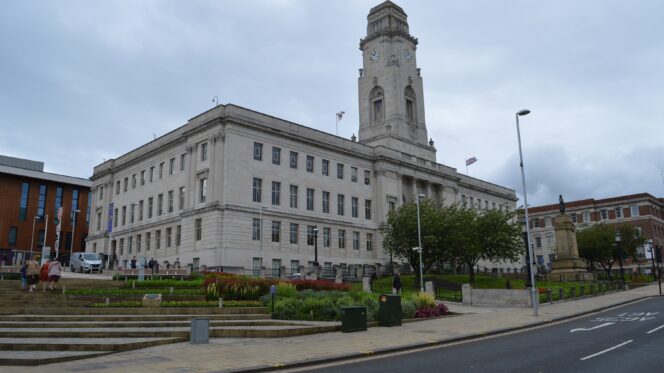Stop Pretending Reform Is Just an Anti-Immigration Party
Nigel Farage has branched out.
by Craig Gent
16 July 2024

I get it – engaging with what Nigel Farage and Reform UK are up to is maddening, bleak, and frequently enraging. Without a doubt, the party is a magnet for ex-BNP types, and its tolerance for racism is alarmingly high given the knack it has for dragging national political discourse onto its terms.
Given we’ve heard Farage play his favourite hits time and again, some might be tempted to put their heads in the sand and block it out. Yet not that long ago, political wisdom was that Faragism was over. Vote Leave had won (following a campaign in which Farage himself had been marginalised by Boris Johnson et al), Ukip had crumbled, and the Tory party had made exiting the EU its entire raison d’être, leaving Nigel with little to rail against and free to spend his time pressing the flesh with Trumpists in the US.
So the fact that in this general election, the Reform vote surpassed Ukip’s high watermark of 2015, held steady (and in many cases gained votes) in areas where the Brexit party was contentious in 2019’s ‘Brexit election’, and placed second in a bunch of seats it hadn’t previously contested, should tell us something. Loudly, and in big letters, with flashing lights.
That is that seeing Reform as a single-issue (ie anti-immigration) party is a far narrower view of the party than that held by most Reform sympathisers. Whether or not other parties face up to this reality will be a question that defines politics over the next five years.
During the election campaign, Novara Media spoke to a number of people who said they were likely to vote for Reform. Yes, they spoke about immigration. And some of them, to be sure, were straight-up racists. But in many cases, their stated reasons had less to do with animosity towards people who aren’t English or white and more to do with the cost of living, the effects of austerity on public services, the improbability of affording a house, a lack of job opportunities, and the overriding feeling that the political class needs – in the words of the daughter of a Ghanaian steelworker – “a good shake-up”. Reform had first connected with the material issues that really matter, before conveniently offering freezing immigration as a plausible-sounding solution.
Sceptics will say Reform’s relative success is really just the story of Conservative collapse. This is, of course, one factor – in the historically minor but nonetheless persistent northern and Welsh ‘working-class conservative’ vote as much as in the more typically Tory east and south of England. But Reform’s ability to remain solid in deindustrialised areas whilst making gains elsewhere, specifically in the absence of the white whale of Brexit, suggests it is in fact succeeding in reinventing itself as a party with sticking power rather than a flash-in-the-pan campaigning vehicle.
We now know that Labour, despite its psephologically efficient landslide majority and Keir Starmer’s rampant suppression of the Labour left, hasn’t won over anyone new. Its vote share demonstrates that, at most, it succeeded in persuading thousands of Tory voters it was safe to stay at home.
Yet Reform has made clear it intends to target Labour’s votes over the next five years – Labour being, let’s not forget, a far clearer enemy to Farage than a Conservative party he can influence from the inside and out. It’s therefore crucial that Labour, and the left more broadly, comes to understand Reform’s appeal beyond its immigration policy. After all, what happens at the next election could well hinge on how Labour is seen to match up on the material issues the party is speaking to.
“You are worse off, both financially and culturally,” reads its website. “Wages are stagnant, we have a housing crisis, our young people struggle to get on the property ladder.”
We know Reform’s key challenge to flipping seats this time around (as we saw in Barnsley and Hartlepool) is getting its supporters, many of whom are historical non-voters, to turn out. Some in Labour might be cloth-eared enough to take comfort from that. But it’s cynical and misguided to gamble on people not taking part in the democratic process. And, as the EU referendum showed, it’s liable to blow up in one’s face.
Those of us who are old enough to remember Ukip’s high point and even the peak of the BNP know there’s probably a limit to how far a party can hope to succeed on the basis of despising migrants alone. But Farage has learnt this lesson. His party will now embark on a mission to ‘reform’ a country broken by austerity and flatlining wages. He’ll weigh every stated outcome of Labour’s homoeopathic securonomics against the material reality of those struggling to get along in Britain today, and – as we know – provide racist answers aplenty and actual solutions none. Yet unless this ground can be carved out from beneath him, I fear he’ll succeed.
Craig Gent is Novara Media’s north of England editor and the author of Cyberboss (2024, Verso Books).


